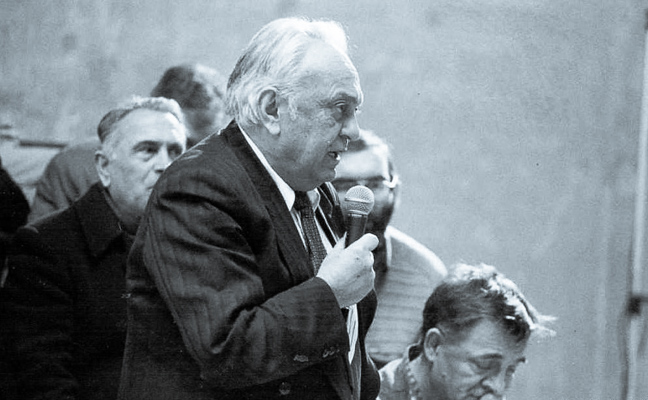
Miladin Životić was born in Ripanj, near Belgrade on August 14th 1930. Upon studying philosophy in Belgrade, in 1953, he taught in high schools in Belgrade and Prizren. In 1957 he began teaching at the Faculty of Philosophy in Belgrade, where he defended his PhD in 1962. He taught Contemporary Philosophy and Axiology. He held fellowships (which allowed him academic visits to the USA) of the Ford Foundation (1960/1961) and the American Council of Learned Societies (1970/1971). He was twice President of the Philosophical Society of Serbia.
As a member of the Praxis group, and one of the founders of the Koručula Summer School (1963-1974), he was seen as one of the instigators of the student protest from June 1968. Together with seven other colleagues, he was removed from the Faculty of Philosophy, by a Lex Specialis, in 1975. He was one of the initiators of the so-called Free University – a series of lectures and debates organized in private apartments (some of which were held at his apartment) from 1976 until 1984. After working for six years at the Center for Philosophy and Social Theory he returned to the Faculty of Philosophy in 1987.
Životić dedicated himself to keeping Serbian philosophy up-to-date with global trends, promoting studies of pragmatism and existentialism in Yugoslavia, and introducing his students to poststructuralism and the work of the so-called second generation Frankfurt School. He founded and headed the School for Philosophy and Literature in Kruševac, but left it six years later, out of protest for its embrace of nationalism. From the very beginning of the wars in the 1990s, he was one of the fiercest critics of nationalism and war politics, becoming an emblematic figure of the anti-war movement and taking up the position of President of the Civic Action for Peace. He was one of the founders and the president of the Belgrade Circle – which gathered independent intellectuals critical of the Milošević regime. Adamantly criticizing the methods and goals of the Belgrade war politics, he morally and politically supported war victims, especially those in Sarajevo, Mostar, Tuzla and other towns in Bosnia and Herzegovina. Being of the opinion that the possibilities of the post-Yugoslav cooperation depended on the way Sarajevo was treated when under siege, he visited the beseiged town twice – in 1994 and 1995. The government-controlled press in Belgrade frequently stigmatized him. During his final years, he dedicated himself to studying the political notion of the Other and establishing a vision of a different Serbia.
He passed away in Belgrade in 1997, three days before he was to receive the honor “Conquering liberty” in Tuzla (Bosnia and Herzegovina).
Books: Odnos morala prema običaju, pravu i religiji, 1957; Osnovna učenja o najvišem dobru i cilju života u istoriji etike, 1957; O ideologiji, 1958; Hjum, 1959; Aktuelni problemi odnosa prema religiji, 1961; Pragmatizam i savremena filozofija, 1966; Čovek i vrednosti, 1969; Egzistencija, realnost i sloboda, 1973; Revolucija i kultura: Prilog kritici savremenih ideologija, 1982; Aksiologija, 1986; Moralitet, legalitet i legitimitet, 1990; Contra bellum, 1997.
